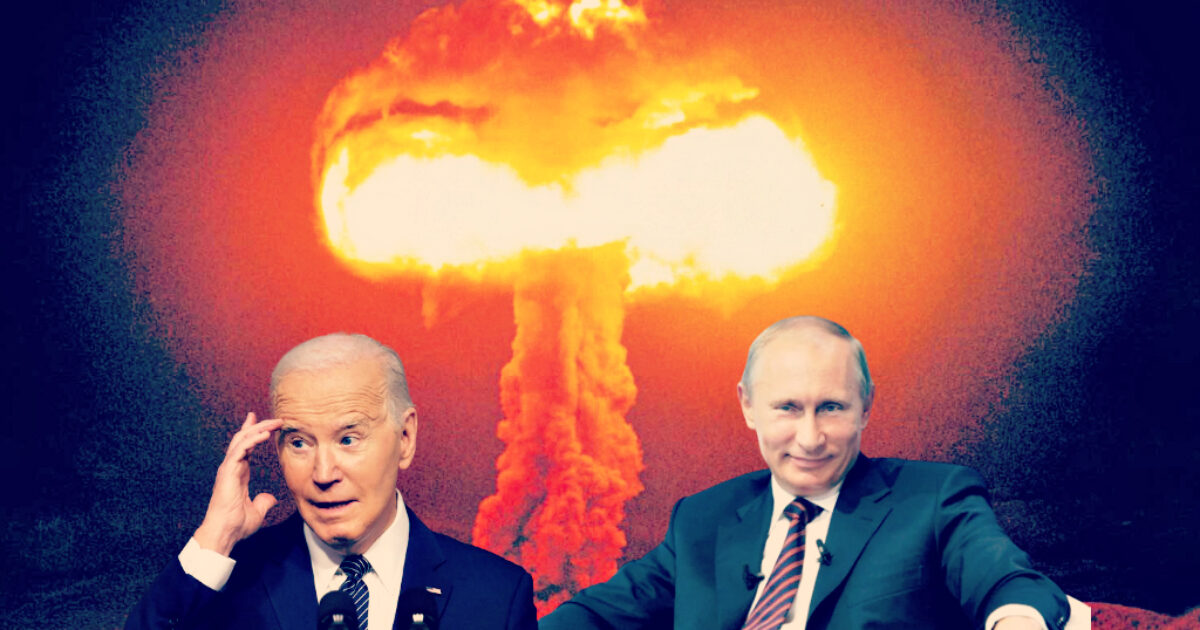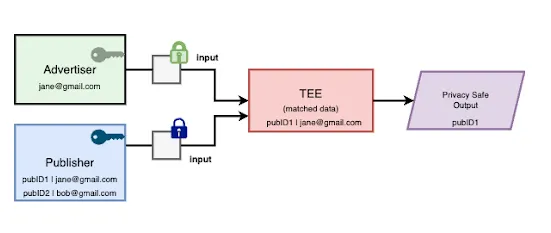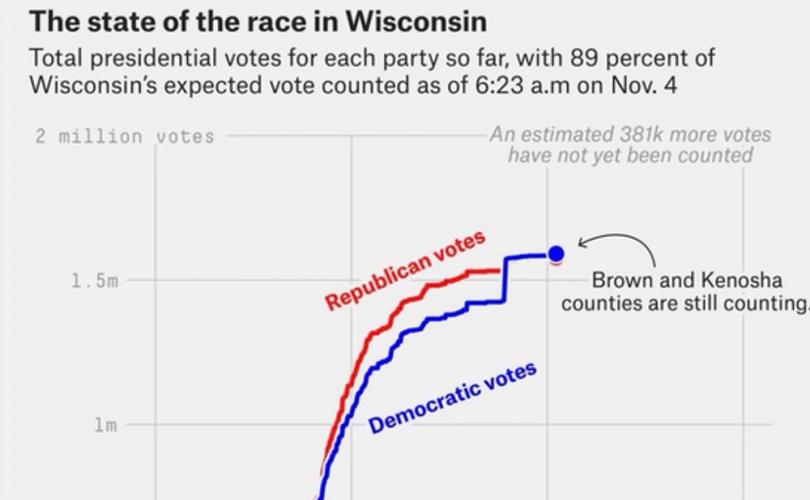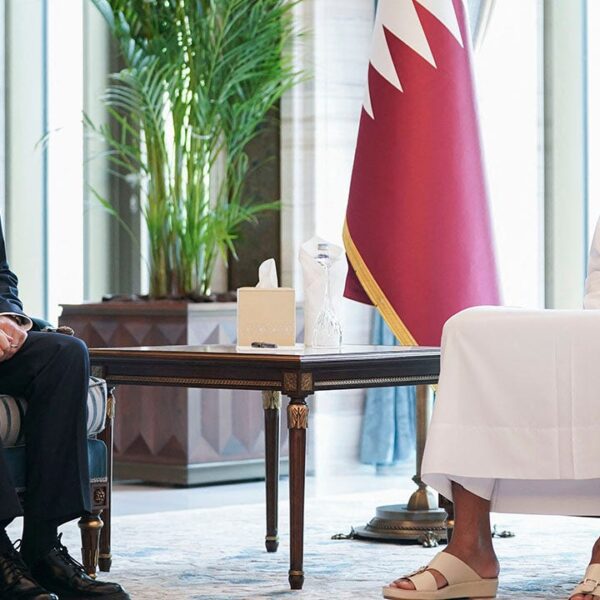
In these two and a half years of war in Ukraine, we see how US and NATO support for Kiev has breached one by one all the Russian so-called ‘red lines’, up until we come to the frightening position that the West is about to greenlight attacks with its long-range missiles deep inside Russian territory, a move that can unleash unimaginable consequences.
That has led Russian President Vladimir Putin to once again warn that the U.S. and NATO would be ‘at war’ with Russia if the West allows Ukraine use long-range missiles – and, in fact, as we will see – be the ones to fire them.
This comes after US State Secretary Anthony Blinken and UK’s Foreign Secretary David Lammy met with President Volodymyr Zelensky in Kiev on Wednesday (11) to discuss exactly that.
Daily Mail reported:
“Putin said the move from the West would ‘change the very nature of the conflict’, and issued a severe threat against giving Zelensky more firepower.
‘It would mean that NATO countries, the US, European countries, are at war with Russia,’ he told a state TV reporter on Thursday. ‘If that’s the case, then taking into account the change of nature of the conflict, we will take the appropriate decisions based on the threats that we will face.’
He added that clearing the way for Ukraine to use missiles that can hit Russian targets ‘is a decision on whether NATO countries are directly involved in the conflict or not’.”
Putin’s warning comes less than 24 hours before President Joe Biden today’s meeting with British Prime Minister Keir Starmer at the White House.
Zelensky is pressuring the West to give him more firepower and air defenses after a series of deadly Russian rocket attacks.
“The Institute for the Study of War, a US think-tank, last month established a list of nearly 250 high value military and paramilitary targets within range of the weapons that could be demolished by Ukraine. Among the main targets laid out by the ISW include as many as 16 Russian air bases, a slew of brigade and division headquarters, artillery and missile units central to Russia’s air defence capabilities, and a variety of logistics hubs supplying Vladimir Putin’s units on the frontlines.
[…] The Kursk nuclear power station and several nuclear weapons stockpiles also pose theoretical targets.”


The Daily Mail report is disingenuous in the sense that it says that ‘Kiev’s soldiers will soon be able to strike Russian military assets as deep as 300km (190 miles) inside Russia’ when in fact, the target selection and the firing would have to be done by NATO troops, as Putin makes it very clear in his warning:
PUTIN: “When it comes to using high–precision long-range Western-made weapons, it’s a completely different story. The fact is that, as I have already said, and any experts will confirm this (both here and in the West), the Ukrainian army is not able to strike with modern high-precision long-range systems of Western production.
It can’t do that. This is possible only with the use of satellite data, which Ukraine does not have — this is data only from satellites of either the European Union or the United States, in general, from NATO satellites. This is the first one.
The second, and very important, perhaps key, is that flight missions to these missile systems can, in fact, only be carried out by military personnel of NATO countries. Ukrainian servicemen cannot do this. And therefore, it is not a question of allowing the Ukrainian regime to strike Russia with these weapons or not to allow it. It’s about deciding whether NATO countries are directly involved in a military conflict or not. If this decision is made, it will mean nothing more than the direct participation of NATO countries, the United States, and European countries in the war in Ukraine.”
To give a more detailed explanation of this difference, read Simplicius on Substack:
“When Ukraine sends its cardboard drones to Moscow, it can get the coordinates on Google maps or whatever other open source database, and does not really need Western involvement.
But advanced missiles and weapons systems are often run by proprietary software that requires special keys, programs, equipment, etc., to input the coordinates into them which cannot be done by the Ukrainians themselves, because giving them such digital ‘keys’ could compromise the entire system even in the home NATO countries in case of future conflict.
Thus, Putin is saying that for these systems to strike deep into Russia would necessarily mean NATO would be directly involved as a combatant in striking Russian territory in a more express way than ever before.”
Read more:















